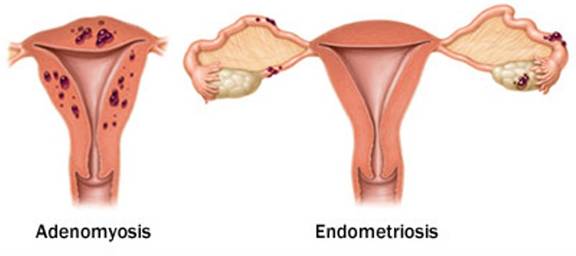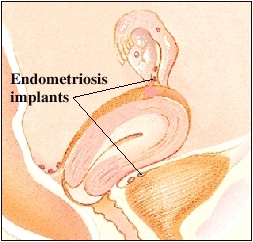Endometriosis Fleshy Tissue During Period. Hormonal therapy: Another characteristic that is believed to define pain caused by endometriosis, is the role of sex hormones, particularly estrogen. In women with endometriosis, that lining grows outside the uterus, usually around the ovaries or beneath the uterus in an area called the posterior cul-de-sac.

Am going to see my gynae tomorrow as have demanded a followup because although no endo was found I am still in so much pain and I did have adhesions.
Hormonal therapy: Another characteristic that is believed to define pain caused by endometriosis, is the role of sex hormones, particularly estrogen.
In women with endometriosis, that lining grows outside the uterus, usually around the ovaries or beneath the uterus in an area called the posterior cul-de-sac. This condition occurs when tissue from the lining of the womb grows outside of the uterus - this can affect the ovaries, the fallopian tubes, the pelvic wall or in extreme cases, it can interfere with the surrounding bowels or bladder. If you notice on heavy days of your period that blood seems extra-thick, and can sometimes form a jelly-like glob, these are menstrual clots, a mix of blood and tissue released from your uterus during your period. Each month, this misplaced tissue responds to the hormonal changes of the menstrual cycle. The endometrium grows and thickens throughout the month. Endometriosis is a condition which can give rise to pain and troublesome periods.
Endometriosis causes tissue that normally grows on the inside lining of your uterus (endometrium) to implant in other parts of your abdomen. Thus by reducing inflammation through NSAIDs, particularly during one's menstrual periods, endometriosis patients have been able to find some relief for their symptoms. When endometriosis involves the diaphragm, it usually affects the right side. Advertising on our site helps support our mission. Cleveland Clinic is a non-profit academic medical center. The most common sign of endometriosis is pain in your lower belly that doesn't go away.
However, with endometriosis, tissue is found outside of the uterus in other areas of the body, such as the abdomen, intestines, and bladder. It can get worse before and during your period. Normally, if a woman doesn't get pregnant, this tissue is shed each month during her period.






